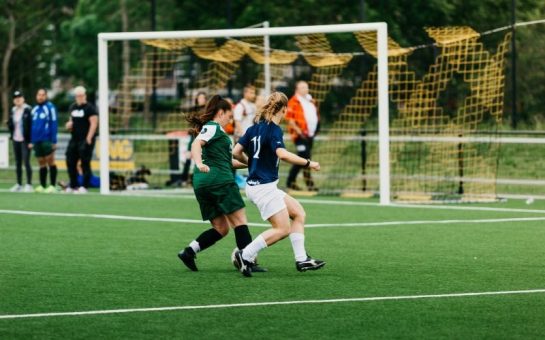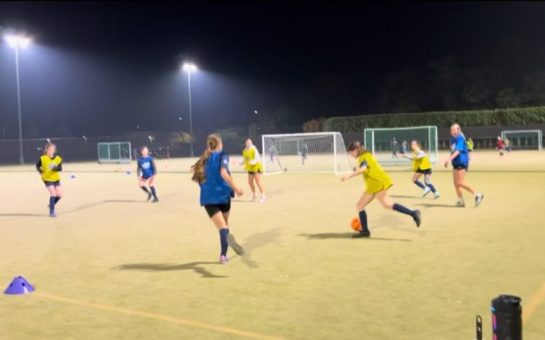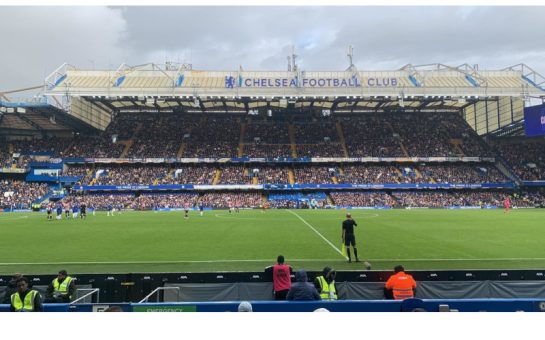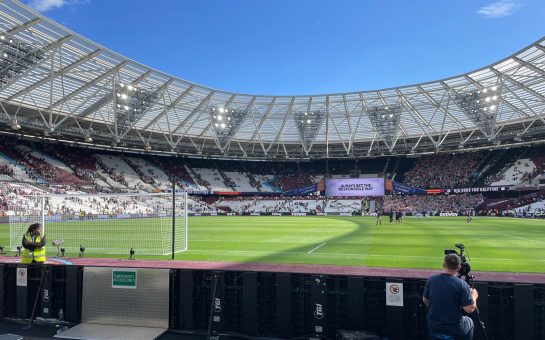With a seven-game unbeaten run, tiki-taka football, and representing the Spanish community, FC Deportivo Galicia are not your average non-league football team.
FC Deportivo Galicia was founded in 1968 by Spanish migrants in Portobello, London.
It was founded as a Sunday League team before moving into the Middlesex County league system in 1995 after merging with another Spanish side.
Now residing in the Combined Counties Division 1, things are going well as they sit 3rd in the table and are currently on a seven-game unbeaten run in the league.
They are doing all of this very differently to other teams around them.
Manager Leo Decabo said: “From a football ethos perspective, it is a very unique way of playing – it is unique in that it isn’t your typical style of British football.
“When we say 1-touch, 2-touch, 3-touch, that’s what we mean. That’s how we train, that’s how we work, it’s very high paced, it’s very intense, both in games and in training sessions.”
Deportivo’s commitment to tiki-taka goes beyond words, and this makes it particularly difficult for new players who join the team.
Decabo said: “We get a lot of requests through our social media, Facebook, Twitter, Instagram now from players who want to come and play for us.
“We want them to come down so we can get a proper look at them, and they are put under quite intense pressure in the first session.
“It is quite easy to see from a character and a football perspective whether they would fit in. It is a big learning process as they would have been used to a different style of football.
“So, for them to be told, ‘no this is how you have to play’, it applies a different kind of stress to play the one-, two-touch football and you’ve got someone bellowing in your ear with intent ‘one-, two-touch pass, move on’.
“If you end up taking a fourth or a fifth, we stop the game and just say ‘leave the ball’- the sessions are very interesting.”

Contrary to what many think, Deportivo do not have exclusively Spanish players, but they do make up a large portion of the squad, and this does throw up problems that others don’t have to deal with.
With players coming from Spain, Morocco and Algeria, holiday periods mean that many return home to their families, leaving the squad struggling to find suitable buck-ups.
However, this does not mean that they aren’t setting expectations high.
Decabo said: “We have high hopes for the season. When last-season got curtailed, we were very good.
“We got to three semi-finals, and we did really well in the mini-league when everything opened up again.
“And all of those players, plus a couple of others, are still with us, so hopefully we should push on. We will be up there.”
Promotion this season would be a huge footballing achievement and would also help Deportivo further engage the Spanish community, both in England and at home.
“Our ultimate intention is to play in the FA Cup. If we achieve that, and if we get promoted then that guarantees us participation.
“Then ultimately from a Spanish perspective that puts us on a different level because all the people back in Spain would be on it.
“At the moment it is difficult even getting Spanish people and organisations in the UK to back us, which is a little bit sad, but it is what it is, and we push on regardless.”
While on-the-pitch results are important for Deportivo Galicia, the club also serves as a valuable part of the Spanish migrant community in England.
Decabo said: “You even asking the question sends a shiver down the back because that is very important to us.
“You’ve got all these lads and lasses who have left Spain six, seven, eight years ago in some cases and these are people who ordinarily would never have met up as they come from different areas of Spain, not only Spain but Morocco and Algeria and all sorts of places.
“You have to bear in mind that a lot of these people have come over on their own, which is a huge step.
“And all of a sudden they have realised that there is a Spanish team and they come down.
“You sit outside it, and you watch them integrate with each other as they start talking, and they help each other with work, problems, and things like that and suddenly they are not alone.
“You look at all their social media posts and all the rest of it and it is a group of guys and girls who have got together through the club, and they are pretty much in each other’s pockets every weekend.”
Featured image credit: FC Deportivo Galicia




